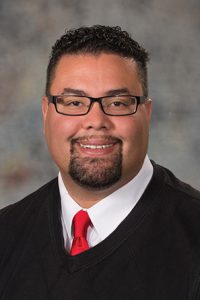TIF repayment extension stalls on first round
After debate spanning two days, a proposal that could extend the maximum length of time to repay tax-increment financing indebtedness in certain cases stalled on general file March 26.

LR14CA, introduced by Sen. Justin Wayne of Omaha, would place a proposed constitutional amendment on the November 2020 general election ballot. The amendment would authorize the Legislature to extend the maximum repayment period for TIF indebtedness from 15 to 20 years if more than half of the property in a project area was designated as extremely blighted.
Wayne said that many Nebraska cities struggle to attract developers to revitalize neighborhoods that are designated substandard and blighted, a challenge that becomes even more difficult in areas that are extremely blighted—those with high poverty levels and high unemployment rates.
State law defines an extremely blighted area as a census tract with an average unemployment rate that is at least 200 percent of the average state unemployment rate and an average poverty rate of more than 20 percent according to the most recent federal decennial census.
“The underlying goal of LR14CA is to spur the use of TIF in those areas that need it the most,” Wayne said.
Only Nebraska and Montana currently have a 15-year maximum length of time for TIF bonds to be repaid, he said, however Montana allows for projects to be extended up to 25 years, making Nebraska’s repayment period the most restrictive in the country.
North Platte Sen. Mike Groene opposed the measure, saying municipalities will find a way around any constraints that the Legislature attempts to place on TIF projects. He acknowledged that high-poverty areas of Omaha have been ignored by developers, but said expanding TIF provisions is not the way to solve the problem.
Groene offered an amendment to stipulate that 100 percent of the property in a project area must be designated as extremely blighted to qualify for the extended repayment period.
“Quite frankly, I don’t trust the economic gurus,” he said. “You are taking property off the tax rolls for 15 years now.”
Bayard Sen. Steve Erdman agreed, saying TIF is not being used for redevelopment as it originally was intended. Instead, he said, it is a “tax giveaway” that benefits developers.
“A cornfield west of town that has been farmed for the last 100 years all of a sudden becomes blighted,” Erdman said. “No clue how that happens—except the city council wanted that annexed into town and now they’ve designated it blighted.”
Sen. Matt Williams of Gothenburg supported LR14CA, saying TIF does not deny property tax income to political subdivisions. Cities and schools still receive property tax revenue on the base value of a project, he said, while the projected increase in property tax value is used to pay down the project bond.
“[TIF] never does—never has—taken property off the tax rolls,” Williams said. “We have these areas that need encouragement. We have housing shortages, we have workforce development issues. All of those can be partly addressed by how we develop blighted areas in our communities.”
Albion Sen. Tom Briese said he believed that the measure could be a benefit to areas in need of redevelopment. He cautioned, however, that lawmakers in the future could expand the definition of extremely blighted in state law if that definition is not made explicit in LR14CA.
“I believe perhaps we should further define extremely blighted in the constitutional provision,” Briese said.
Wayne said he understood the concern, but said the constitution is a place for broad concepts and ideas, not strict definitions. For example, he said, the current definition of extremely blighted in state law uses census tract data, which may not be available in the same form in the future.
Adjusting public policy is easier to do in state law than by amending the constitution, Wayne said.
The Legislature moved on to the next item on the agenda before voting on LR14CA or the pending amendment. Per a practice implemented by Speaker Jim Scheer, the sponsor of a bill that is facing a potential filibuster must demonstrate sufficient support for a cloture motion before the measure will be scheduled for additional debate.
Scheer said he believed that a compromise on the proposal could be found and that LR14CA likely will be debated again this session.


